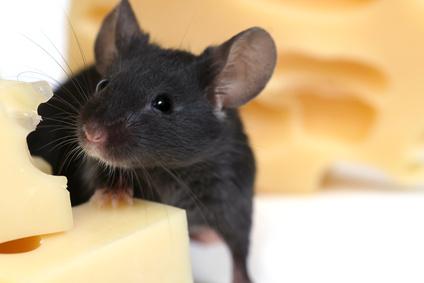美国癌症研究协会的会刊——Cancer Research——刊登了一篇论文,介绍了低碳水化合物、高蛋白的饮食可降低患癌症的风险和减缓目前已有肿瘤的生长。
研究的对象是小鼠,但参与的科学家认为,明确的实验结论可以证实这一点——上述结论同样适用于人体。
英国哥伦比亚癌症研究中心杰出的科学家、首席研究员杰拉尔德博士(Gerald Krystal)称,饮食中很简单的改变能够影响癌症发生的概率。
Lankenau医学研究所首席执行官、癌症研究中心主编George Prendergast说道,许多癌症患者乐于在可控制的方面做出改变,以缓解病情,而这一研究向他们传达一个很确切的信息,饮食成分的调整对他们来说是有益的。
克里斯塔尔(Krystal )和他的同事用人体癌细胞或鼠癌细胞植入不同品种的小鼠,每一品种的小鼠分别食用以下2种食谱之一,一种是典型西方人的食谱,大约55%的碳水化合物、23%的蛋白质和22%的脂肪;另一种是南海岸地区(South Beach)的食谱,碳水化合物、蛋白质和脂肪含量分别为15%、58%和26%。研究发现,第2种食谱喂养的小鼠,其肿瘤细胞一直生长较慢。
同时,易患乳腺癌的转基因小鼠分别食用2种食谱之一,西方人食谱喂养的小鼠有一半以上在第1年患上乳腺癌,而低碳水化合物食谱喂养的小鼠在相同的时期内却没有1个患病。有趣的是,西方人食谱喂养的小鼠只有一个达到正常寿命(大约2年),70%的小鼠死于癌症,然而,食用低碳水化合物的小鼠半数以上达到或超过正常寿命,只有30%的小鼠死于癌症。
克里斯塔尔(Krystal)和他的同事还检测mTOR抑制剂和COX-2抑制剂对肿瘤生长的影响,前者能抑制细胞生长,后者具有消炎的功能。他们发现,这2种药物增强了低碳水化合物、高蛋白质食谱对小鼠肿瘤细胞生长的抑制。
当被问到怎样解释上述现象的生理机制时,克里斯塔尔(Krystal)说,肿瘤细胞区别正常细胞一点是需要更多的血糖维持生长和扩展。限制碳水化合物的摄取能很明显的控制血糖和胰岛素的浓度,后者是一种激素,许多独立试验都证实它促进人体和小鼠的癌细胞生长。
此外,低碳水化合物、高蛋白质饮食有2个潜在功能:一方面能增强免疫系统对癌细胞的杀伤作用;另一方面能防止容易导致慢性炎症和癌症的肥胖。(生物探索译)

低碳水化合物、高蛋白质饮食能预防癌症和减缓癌细胞的生长
生物探索推荐英文全文
Low-Carbohydrate, High-Protein Diets May Reduce Both Tumor Growth Rates and Cancer Risk
Eating a low-carbohydrate, high-protein diet may reduce the risk of cancer and slow the growth of tumors already present, according to a study published in Cancer Research, a journal of the American Association for Cancer Research.
The study was conducted in mice, but the scientists involved agree that the strong biological findings are definitive enough that an effect in humans can be considered.
"This shows that something as simple as a change in diet can have an impact on cancer risk," said lead researcher Gerald Krystal, Ph.D., a distinguished scientist at the British Columbia Cancer Research Centre.
Cancer Research editor-in-chief George Prendergast, Ph.D., CEO of the Lankenau Institute for Medical Research, agreed. "Many cancer patients are interested in making changes in areas that they can control, and this study definitely lends credence to the idea that a change in diet can be beneficial," said Prendergast, who was not involved with the study.
Krystal and his colleagues implanted various strains of mice with human tumor cells or with mouse tumor cells and assigned them to one of two diets. The first diet, a typical Western diet, contained about 55 percent carbohydrate, 23 percent protein and 22 percent fat. The second, which is somewhat like a South Beach diet but higher in protein, contained 15 percent carbohydrate, 58 percent protein and 26 percent fat. They found that the tumor cells grew consistently slower on the second diet.
As well, mice genetically predisposed to breast cancer were put on these two diets and almost half of them on the Western diet developed breast cancer within their first year of life while none on the low-carbohydrate, high-protein diet did. Interestingly, only one on the Western diet reached a normal life span (approximately 2 years), with 70 percent of them dying from cancer while only 30 percent of those on the low-carbohydrate diet developed cancer and more than half these mice reached or exceeded their normal life span.
Krystal and colleagues also tested the effect of an mTOR inhibitor, which inhibits cell growth, and a COX-2 inhibitor, which reduces inflammation, on tumor development, and found these agents had an additive effect in the mice fed the low-carbohydrate, high-protein diet.
When asked to speculate on the biological mechanism, Krystal said that tumor cells, unlike normal cells, need significantly more glucose to grow and thrive. Restricting carbohydrate intake can significantly limit blood glucose and insulin, a hormone that has been shown in many independent studies to promote tumor growth in both humans and mice.
Furthermore, a low-carbohydrate, high-protein diet has the potential to both boost the ability of the immune system to kill cancer cells and prevent obesity, which leads to chronic inflammation and cancer.







